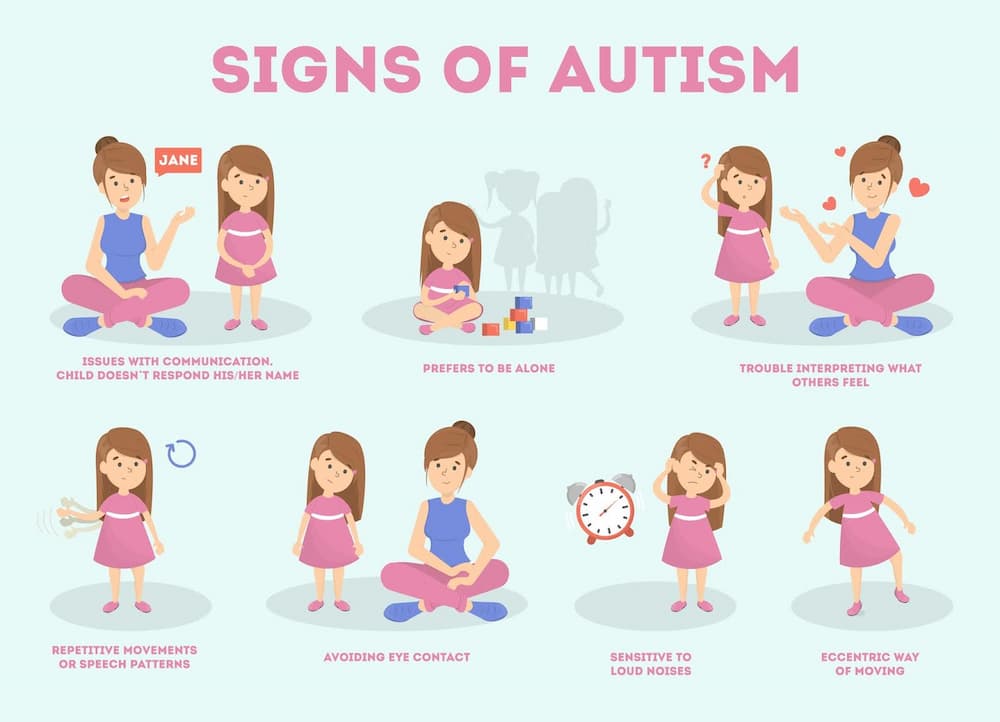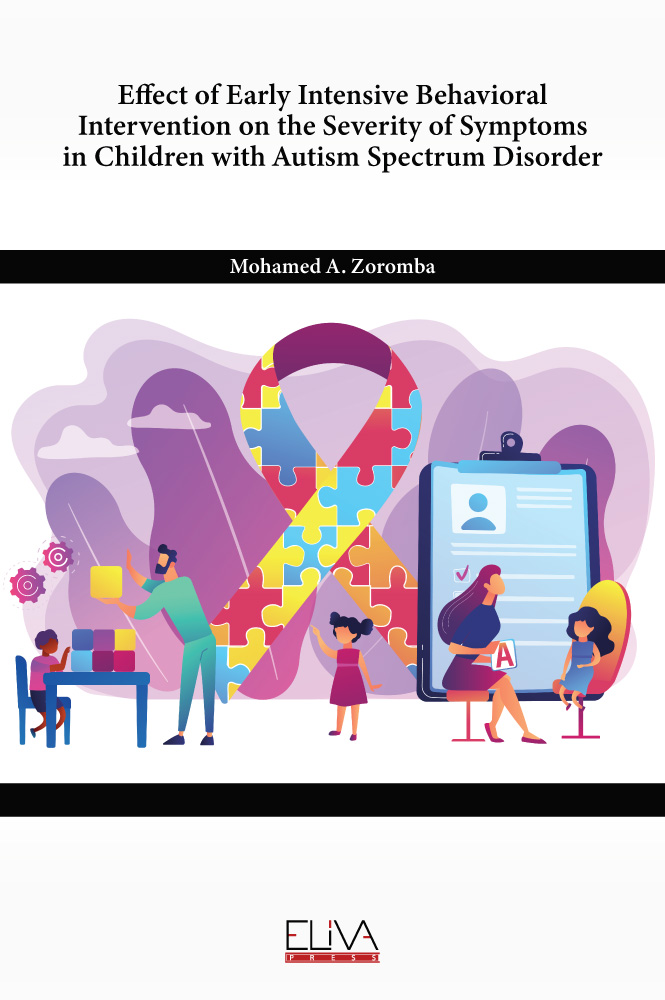Five practical strategies Autism Behavioral Therapy techniques ease transitions
Five practical strategies Autism Behavioral Therapy techniques ease transitions
Blog Article
Understanding the Impact of Behavioral Autism on Daily Life and Social Interactions
You might not recognize just how deeply behavioral autism affects life and social interactions. Individuals on the spectrum typically navigate a globe loaded with communication obstacles and sensory overload. These difficulties can cause aggravation and isolation, influencing their partnerships and overall wellness. Understanding these subtleties is vital for cultivating supportive atmospheres. What strategies can we carry out to create even more comprehensive spaces and purposeful connections? The responses could amaze you.
Specifying Behavior Autism and Its Qualities
Behavioral autism, frequently described as autism spectrum disorder (ASD), incorporates a variety of conditions defined by obstacles in social communication, interaction, and repeated habits. You might observe that individuals with ASD commonly battle to analyze social signs, which can result in misunderstandings in conversations. They may find it difficult to develop eye get in touch with or take part in tiny talk, making social scenarios feel overwhelming.
Interaction difficulties can manifest in numerous ways, from delayed speech growth to a preference for using fewer words. Recurring habits, such as hand-flapping or shaking, can act as coping mechanisms to take care of tension or sensory overload. These attributes can exceptionally influence day-to-day live, making it important for you to comprehend and support those with ASD. By acknowledging these traits, you can promote an environment that promotes approval and encourages effective interaction, assisting individuals with autism grow in their daily communications.
The Spectrum of Autism: Recognizing Variability in Behavior
Autism spectrum condition (ASD) isn't a one-size-fits-all medical diagnosis; it differs commonly among individuals. You may see that some individuals with ASD exhibit moderate signs, while others may encounter more considerable challenges. This variability can show up in behaviors, rate of interests, and sensory sensitivities. You may come across individuals who are highly spoken and involve quickly in conversations, while others might prefer singular activities or connect non-verbally.
Furthermore, the way people with ASD react to sensory input can vary greatly; some may be overwhelmed by loud sounds or intense lights, whereas others grow in stimulating environments. The spectrum also consists of distinctions in social communications; some people might have a hard time to interpret social hints, while others browse social settings with loved one ease. Understanding this variability is important, as it helps you value each person's distinct experience and tailor assistance to their certain requirements, promoting an extra inclusive setting for everyone.
Communication Difficulties Dealt With by People With Autism
When you engage with people on the autism range, you may see their one-of-a-kind communication difficulties. They usually encounter troubles with both nonverbal and verbal signs, which can impact their social communications. Understanding these obstacles is essential for cultivating better links and assistance.

Verbal Interaction Problems
Lots of individuals on the autism range experience verbal interaction problems that can significantly affect their day-to-day communications. You may find it challenging to express your thoughts, sensations, or needs plainly. This can cause irritation for both you and those around you, as misunderstandings take place. You might have a hard time with initiating discussions, preserving a subject, or understanding nuances in speech. Typically, you could like utilizing basic language or repeated phrases, which can restrict your capability to participate in much deeper conversations. Your speed, quantity, or tone may not align with social expectations, creating others to misunderstand your purposes. Identifying these obstacles can assist you and your support network create strategies to enhance communication and foster much better connections with others in your life.
Nonverbal Interaction Obstacles
Verbal communication isn't the only difficulty people on the autism spectrum face; nonverbal communication obstacles can be simply as considerable. These challenges can lead to misunderstandings or misinterpretations of social cues, making communications feel confusing or overwhelming. By resolving nonverbal communication, you can find strategies to improve your social experiences and improve your total quality of life.
Social Interaction Effects
Social interactions can often feel frustrating due to the distinct communication challenges faced by people with autism. Recognizing these challenges can aid you find methods to boost communication, such as exercising social skills in secure settings or using visual help. Comprehending your requirements permits you to browse social interactions with greater confidence and simplicity.
Social Communication and Relationship Building in Autism
While building connections can be challenging for people with autism, recognizing their special perspectives and communication designs can cultivate significant connections. You may observe that lots of individuals on the spectrum favor straight communication and may battle with social hints or little talk. By being straightforward in your interactions, you can assist create a setting where they really feel comfortable.
Put in the time to observe and pay attention exactly how they reveal themselves. This understanding can direct you in guiding discussions much more efficiently. Engaging in shared interests can likewise function as a bridge to much deeper links. Whether it's a leisure activity, a preferred show, or a common passion, these usual threads can open up doors to friendship.
Life Regimen: Browsing Methods and difficulties
Maneuvering daily life regimens can be particularly challenging for individuals with autism, specifically when unforeseen modifications take place. To navigate these challenges, consider implementing visual routines or lists.
Developing a routine that includes sensory breaks can likewise be helpful. This aids produce an understanding environment.
Last but not least, technique mindfulness methods to handle tension and stress and anxiety. Simple breathing exercises or basing methods can make a significant distinction. By including these techniques, you can improve your everyday routine and decrease disturbances, making life feel hop over to these guys extra manageable.
Strengths and Capacities of People on the Autism Spectrum
Recognizing day-to-day life regimens is just one aspect of the autism experience. Lots of individuals on the autism spectrum possess impressive staminas and capabilities that set them apart.
Furthermore, your memory abilities typically beam, specifically in areas of interest. Autism Therapist. This propensity for retaining details can make you a beneficial resource in areas like innovation, scientific research, or art. You may additionally display solid visual thinking, allowing you to picture complex ideas and address issues artistically
Additionally, your unique viewpoint on the globe can foster empathy and understanding in others, enhancing social interactions. Accepting these strengths not only enhances your self-confidence but also aids others appreciate the diverse skills you give the table.
Developing Inclusive Atmospheres for Individuals With Autism
Producing comprehensive atmospheres for people with autism starts with developing sensory-friendly spaces that provide to their special demands. You can likewise promote possibilities for social communication, assisting to construct friendships and connections. By making these modifications, you'll contribute to an extra inviting environment for every person.
Creating Sensory-Friendly Spaces
While making sensory-friendly rooms, it's vital to show on the distinct requirements of people with autism. Incorporate silent zones where individuals can charge and retreat when overwhelmed. Include visual schedules or clear signage to aid people navigate the space confidently.
Advertising Social Communication Opportunities
Designing sensory-friendly rooms not only addresses individual convenience however additionally sets the phase for purposeful social communications among people with autism. To promote these communications, produce comprehensive atmospheres that welcome involvement. Arrange structured tasks, like art classes or team video games, that encourage partnership without overwhelming sensory input. Usage aesthetic help and clear interaction to aid every Website person engage pleasantly. Encourage peer mentoring, matching individuals with autism with supportive peers who can assist them with social situations. In addition, take into consideration hosting normal area occasions that commemorate neurodiversity, fostering approval and understanding amongst all individuals. By applying these strategies, you can boost social possibilities, aiding people with autism build relationships and enhance their social skills in a secure, inviting atmosphere.

Frequently Asked Concerns
How Can Buddies Support Somebody With Behavioral Autism?
You can sustain a close friend with behavioral autism by being individual, paying attention proactively, and appreciating their boundaries. Participate in activities they enjoy, communicate honestly, and develop a comfortable atmosphere where they really feel valued and recognized.
What Resources Are Offered for Parents of Children With Autism?
You can check out different sources for moms and dads of children with autism, consisting of support system, academic web sites, and neighborhood neighborhood solutions. Getting in touch with various other parents can also provide useful insights and shared experiences to assist browse challenges.
Can Behavioral Autism Modification Gradually?

Yes, behavioral autism can alter with time. You may observe shifts in communication, social abilities, and habits as your youngster grows. Early intervention and support typically play crucial roles in these developmental changes.
Exactly How Do Sensory Sensitivities Impact Day-to-day Live?
Sensory sensitivities can make day-to-day experiences overwhelming. You could battle check my reference with loud sounds or intense lights, resulting in stress and anxiety or avoidance. Locating atmospheres that fit your requirements can greatly enhance your comfort and overall every day life.
What Prevail Misconceptions Regarding Behavioral Autism?
You might think behavior autism just affects interaction abilities, yet it's even more complex. Many presume individuals lack empathy or knowledge, which isn't true. Recognizing these misconceptions aids foster acceptance and assistance for those on the range.
Behavior autism, commonly referred to as autism spectrum problem (ASD), encompasses a range of conditions characterized by obstacles in social communication, interaction, and repeated actions.Social interactions can frequently really feel overwhelming due to the distinct communication obstacles encountered by people with autism.Creating sensory-friendly areas not just addresses private convenience but additionally establishes the stage for meaningful social interactions among people with autism. Motivate peer mentoring, matching individuals with autism with supportive peers that can assist them with social situations. By executing these techniques, you can improve social opportunities, assisting individuals with autism construct friendships and strengthen their social abilities in a risk-free, inviting atmosphere.
Report this page